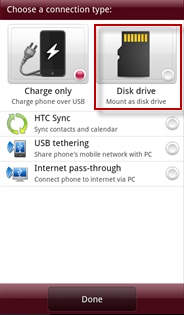

It’s the alchemy of “design once, play anywhere” coupled to the allure of cheap impulse-buy hardware. By contrast, cloud gaming promises developers homogeneity and users freedom from relentless bank-emptying upgrades. To content makers, what seems a healthy abundance of distinctive platforms can become a developmentally balkanized and costly albatross. Content delivery to a market flush with PCs, game consoles and mobile devices remains something of a paradox. “In creating a new platform, you need to either become a bridge to existing content, or you need to take the content with you,” says McLoughlin, summing up an industry truism. “The users won’t come and use the platform unless the content’s there, and the developers won’t come and develop the content unless the users are there.” McLoughlin, an intrepid 23-year-old computer engineer, dropped out of college to found a company he hopes will deliver what OnLive couldn’t by rethinking cloud gaming pillars like bandwidth, latency (the time between an action and response), scalability and, crucially, a sufficiently diverse catalog of interesting things to play. “It’s just the Catch-22 of creating a platform,” he says. But for upstart cloud gaming firm LiquidSky’s CEO, Ian McLoughlin, it’s down to two things: infrastructure and content.

The reasons for OnLive’s demise could fill a book.
#LUQID SKY CLIENT FOR MAC SERIES#
The idea never took, and despite a series of pricing and service contortions, the company-at one point said to be worth billions-closed its doors in April 2015, selling many of its patents to Sony. But gamers are notorious nitpickers, and OnLive’s service was visually glitchy and content-bereft, writing conceptual checks its technology and economics couldn’t cash.

Like Netflix or Hulu, in other words, albeit with much steeper server-side computing costs. OnLive’s internally no-frills set top, bundled with a gamepad, communicated with game servers that shouldered the processing burdens of a given game, then streamed just its audiovisuals across the Internet for players to enjoy. In 2010, a startup calling itself OnLive attempted to upend the games industry with a hockey-puck-sized box and service designed to do just this. The thinly arrayed client devices on the receiving end literally become, as journalist Edward Murrow once said of TV, just “wires and lights in a box.” A centrally located, comparably high-powered computer does the heavy lifting, then transmits only the audiovisuals back to the end device and its user. Instead of building costly, complex computing devices that process their own content, you cobble together cut-rate receptacles for that content with all the intricacy-and thereby potential failure points-stripped out. That’s in part because the concept remains a holy grail of sorts. In old-school parlance, we called those machines “mainframes.” In today-speak, you might call them cloud servers.Ĭloud computing was a thing long before it was called cloud computing. So stupid, in fact, that we nicknamed this prehistoric, biz-angled species of keyboard-and-monitor “dumb terminals”-slang for intentionally complexity-allergic vessels into which content was beamed by sophisticated, centrally located machines that filled rooms like squadrons of refrigerators. Not in the sense of being primitive, though they were also that, but in the literal sense of being internally braindead. Decades ago, before the Internet was a gleam in Uncle Sam’s eye, computers were stupid.


 0 kommentar(er)
0 kommentar(er)
